Category
Popular Articles
- AI (17)
- Android (48)
- App Suggest (13)
- Apple (42)
- Apple TV (4)
- Bluetooth (3)
- Cars (2)
- ChatGpt (1)
- Chrome (2)
- Did you know? (1)
- E-Commerce News (1)
- Ecommerce Websites business (7)
- Electronics Shopping (5)
- Fashion Tips (3)
- Gaming (5)
- Google Gemini (3)
- Hair Care Tips (2)
- How to (13)
- iCloud (1)
- Infotainment System (1)
- Iphone (145)
- Job Posting (1)
- Lifestyle (3)
- Mac (25)
- Mobile Games (1)
- Netflix (1)
- Online Shopping Websites (2)
- Personal Finance Management (3)
- Product Reviews (3)
- Roku TV (4)
- Samsung (10)
- Shopping Tips (13)
- Spotify (1)
- Tech (153)
- VPN (2)
- Windows 11 (38)
- Zero Waste (3)
Discounted Products
-
 Leo Creation 144 TC Cotton Double Jaipuri Prints Flat Bedsheet(Pack of 1, Blue, Gree, Red, Grey, Light Grey)
Leo Creation 144 TC Cotton Double Jaipuri Prints Flat Bedsheet(Pack of 1, Blue, Gree, Red, Grey, Light Grey)
₹2,999.00Original price was: ₹2,999.00.₹329.00Current price is: ₹329.00. -
 Home Garage 210 TC Cotton King Floral Fitted (Elastic) Bedsheet(Pack of 1, Grey)
Home Garage 210 TC Cotton King Floral Fitted (Elastic) Bedsheet(Pack of 1, Grey)
₹999.00Original price was: ₹999.00.₹299.00Current price is: ₹299.00. -
 Goodrik 140 TC Cotton Double 3D Printed Flat Bedsheet(Pack of 1, Brown)
Goodrik 140 TC Cotton Double 3D Printed Flat Bedsheet(Pack of 1, Brown)
₹499.00Original price was: ₹499.00.₹229.00Current price is: ₹229.00. -
 GLOBALSHOP 350 TC Microfiber Double Floral Flat Bedsheet(Pack of 1, Multicolor)
GLOBALSHOP 350 TC Microfiber Double Floral Flat Bedsheet(Pack of 1, Multicolor)
₹1,250.00Original price was: ₹1,250.00.₹263.00Current price is: ₹263.00. -
 RisingStar 250 TC Microfiber King Printed Fitted (Elastic) Bedsheet(Pack of 1, FITTED-ROUND-CIRCLES-PREMIUM)
RisingStar 250 TC Microfiber King Printed Fitted (Elastic) Bedsheet(Pack of 1, FITTED-ROUND-CIRCLES-PREMIUM)
₹2,299.00Original price was: ₹2,299.00.₹299.00Current price is: ₹299.00. -
 Home Garage 210 TC Cotton King Floral Fitted (Elastic) Bedsheet(Pack of 1, Fitted Black Green)
Home Garage 210 TC Cotton King Floral Fitted (Elastic) Bedsheet(Pack of 1, Fitted Black Green)
₹1,299.00Original price was: ₹1,299.00.₹299.00Current price is: ₹299.00. -
 Home Garage 180 TC Cotton King 3D Printed Flat Bedsheet(Pack of 1, White)
Home Garage 180 TC Cotton King 3D Printed Flat Bedsheet(Pack of 1, White)
₹999.00Original price was: ₹999.00.₹229.00Current price is: ₹229.00. -
 Home Sizzler 153 cm (5 ft) Polyester Room Darkening Window Curtain (Pack Of 2)(Floral, Maroon)
Home Sizzler 153 cm (5 ft) Polyester Room Darkening Window Curtain (Pack Of 2)(Floral, Maroon)
₹799.00Original price was: ₹799.00.₹299.00Current price is: ₹299.00. -
 Panipat Textile Hub 152.4 cm (5 ft) Polyester Window Curtain (Pack Of 2)(Solid, Aqua)
Panipat Textile Hub 152.4 cm (5 ft) Polyester Window Curtain (Pack Of 2)(Solid, Aqua)
₹1,899.00Original price was: ₹1,899.00.₹299.00Current price is: ₹299.00. -
 Home Sizzler 214 cm (7 ft) Polyester Semi Transparent Door Curtain (Pack Of 2)(Floral, Maroon)
Home Sizzler 214 cm (7 ft) Polyester Semi Transparent Door Curtain (Pack Of 2)(Floral, Maroon)
₹1,199.00Original price was: ₹1,199.00.₹399.00Current price is: ₹399.00. -
 Home Sizzler 153 cm (5 ft) Polyester Room Darkening Window Curtain (Pack Of 2)(Floral, Brown)
Home Sizzler 153 cm (5 ft) Polyester Room Darkening Window Curtain (Pack Of 2)(Floral, Brown)
₹799.00Original price was: ₹799.00.₹299.00Current price is: ₹299.00. -
 Stella Creations 214 cm (7 ft) Polyester Room Darkening Door Curtain (Pack Of 2)(Abstract, Brown)
Stella Creations 214 cm (7 ft) Polyester Room Darkening Door Curtain (Pack Of 2)(Abstract, Brown)
₹1,299.00Original price was: ₹1,299.00.₹449.00Current price is: ₹449.00. -
 Homefab India 152.5 cm (5 ft) Polyester Room Darkening Window Curtain (Pack Of 2)(Floral, Light Blue)
Homefab India 152.5 cm (5 ft) Polyester Room Darkening Window Curtain (Pack Of 2)(Floral, Light Blue)
₹1,199.00Original price was: ₹1,199.00.₹319.00Current price is: ₹319.00. -
 Urban Home 214 cm (7 ft) PVC Transparent Door Curtain Single Curtain(Solid, Off White)
Urban Home 214 cm (7 ft) PVC Transparent Door Curtain Single Curtain(Solid, Off White)
₹699.00Original price was: ₹699.00.₹203.00Current price is: ₹203.00. -
 Panipat Textile Hub 213 cm (7 ft) Polyester Door Curtain (Pack Of 2)(Solid, Brown)
Panipat Textile Hub 213 cm (7 ft) Polyester Door Curtain (Pack Of 2)(Solid, Brown)
₹1,199.00Original price was: ₹1,199.00.₹349.00Current price is: ₹349.00.
Affiliate Links
Promotion
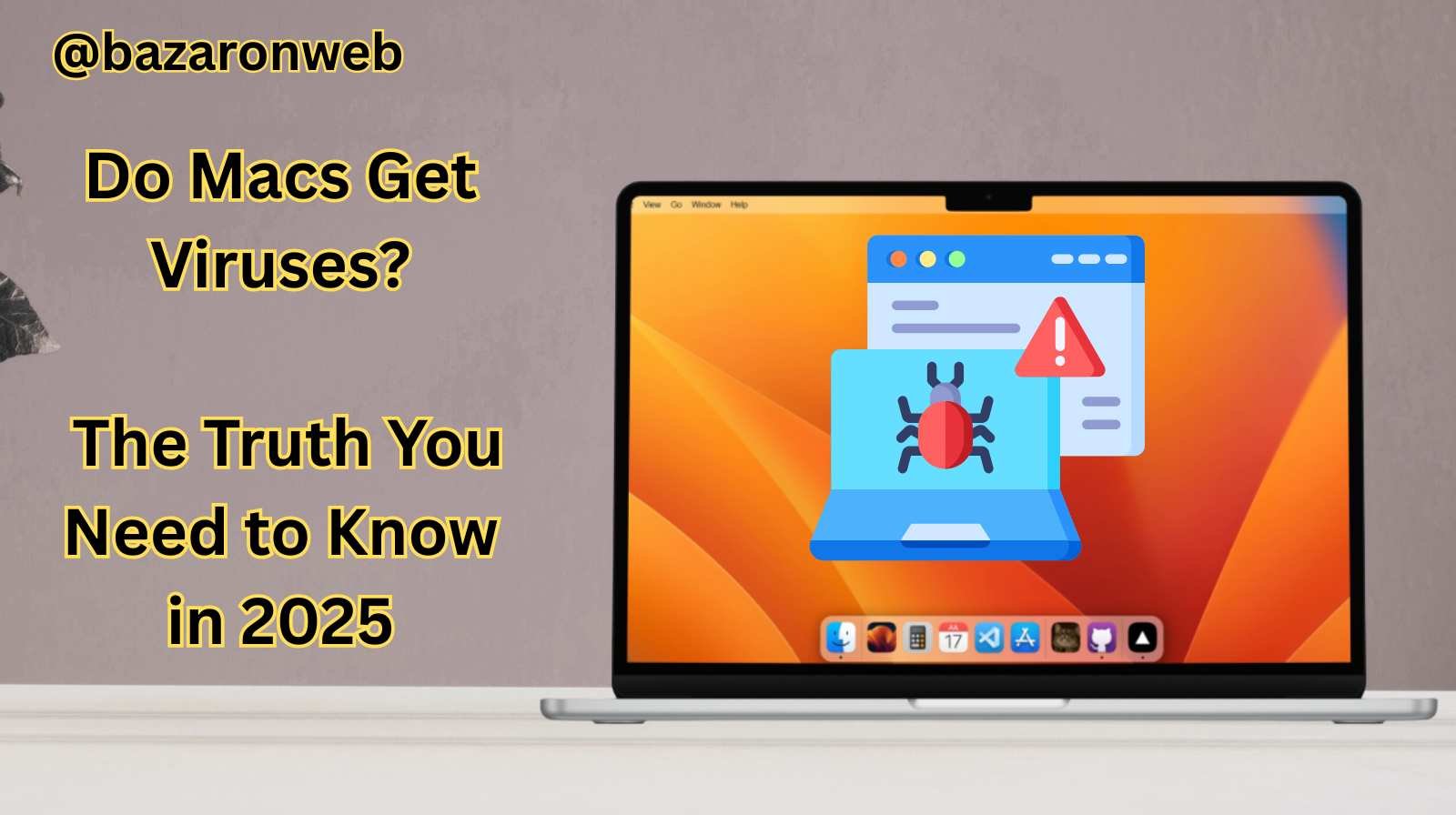
Hi, Jessica here! If you’ve ever owned or thought about buying a Mac, chances are you’ve heard the claim that “Macs don’t get viruses.” For years, Apple fans have boasted about their devices being immune to malware, while PC users were left battling viruses and downloading antivirus software. But in 2025, is that really true? Do Macs get viruses—or is it just a myth?
Let’s dive into the facts, clear up misconceptions, and talk about how you can protect your Mac from digital threats.
Where the Myth Came From
The idea that “Macs don’t get viruses” didn’t come out of nowhere. Back in the 2000s and early 2010s, most cybercriminals targeted Windows PCs. Why? Because Windows dominated the global market with more than 80% of users. Hackers simply had more to gain by attacking Windows.
Macs, on the other hand, had a much smaller market share. Fewer users meant fewer rewards for hackers, so they were largely ignored. That gave rise to the myth that Macs were completely immune to malware.
But the truth is, no device is 100% secure. And as Macs gained popularity, hackers started to pay attention.
So, Do Macs Get Viruses?
The short answer is: Yes, Macs can get viruses.
However, they don’t get them as frequently as Windows PCs. macOS, Apple’s operating system, does have strong built-in security features. But that doesn’t make Macs invincible. In fact, over the past decade, researchers have discovered an increasing number of malware threats designed specifically for macOS.
Some well-known examples include:
- Flashback Trojan (2012) – One of the first large-scale Mac infections, affecting over 600,000 Macs worldwide.
- KeRanger (2016) – The first ransomware attack on Macs, which encrypted users’ files.
- Silver Sparrow (2021) – A mysterious piece of malware found on tens of thousands of Macs with no clear purpose.
These examples prove that Macs are very much on hackers’ radar.
Why Macs Are Still Safer
So if Macs can get viruses, why do people still say they’re safer than Windows PCs? Here’s why:
- UNIX-based foundation – macOS is built on UNIX, which has strong user permission structures. This makes it harder for malware to spread.
- Gatekeeper – A built-in security feature that blocks apps not downloaded from the Mac App Store or identified developers.
- XProtect – Apple’s own antivirus system, silently updated in the background to block known malware.
- Sandboxing – Limits how much access an app has to system resources.
- Lower market share (still) – While Macs are more popular today, Windows still dominates, so attackers focus more on PCs.
This combination makes Macs less vulnerable, but again—not invulnerable.
Types of Threats Macs Face
Mac malware has evolved just like PC malware. Here are the most common threats Mac users need to know about:
- Viruses & Trojans – Programs that spread or disguise themselves as legitimate apps.
- Ransomware – Encrypts your files until you pay a ransom. Rare on Macs, but not impossible.
- Adware – Annoying pop-ups and unwanted ads, often bundled with shady downloads.
- Spyware – Secretly monitors your activity and steals information.
- Phishing Attacks – Emails or websites that trick you into sharing passwords.
- Cryptojacking – Malware that uses your Mac’s power to mine cryptocurrency.
Most infections happen not because macOS is weak, but because of user behavior—downloading pirated software, clicking suspicious links, or skipping updates.
How to Tell if Your Mac Has a Virus
It’s not always obvious when a Mac is infected, but here are some red flags:
- Your Mac suddenly runs slower than usual.
- Unexpected pop-ups or ads appear.
- Apps crash frequently.
- Browser settings change without your input.
- Battery drains faster than normal.
- You notice unknown apps or files installed.
If you notice these symptoms, don’t ignore them. Your Mac might be compromised.
How to Protect Your Mac from Viruses
Now for the good news: keeping your Mac safe is very doable. Here’s how I recommend securing your device in 2025:
- Keep macOS Updated – Apple regularly patches security vulnerabilities.
- Download Apps Only from Trusted Sources – Stick to the App Store or official developer websites.
- Enable Gatekeeper and XProtect – Don’t turn these off, even for “convenience.”
- Use Strong, Unique Passwords – And consider enabling iCloud Keychain to store them securely.
- Turn on Two-Factor Authentication – Adds an extra layer of security to your Apple ID.
- Avoid Public Wi-Fi Without a VPN – Hackers love unsecured networks.
- Consider Antivirus Software – While not essential for everyone, apps like Malwarebytes or Bitdefender can catch what Apple misses.
- Back Up Regularly – Use Time Machine or iCloud so you’re protected if ransomware strikes.
Should You Get Antivirus for Your Mac?
This is one of the most debated questions in Apple communities. Some people say antivirus isn’t necessary because macOS already has strong protections. Others argue that dedicated antivirus software adds another layer of safety.
Here’s my take:
- If you’re a casual user who sticks to Safari, the App Store, and doesn’t download random files, Apple’s built-in tools may be enough.
- If you’re a power user who downloads apps outside the App Store, uses torrents, or works with sensitive data, then yes, an antivirus app is worth having.
The Future of Mac Security
Looking ahead, it’s safe to say cybercriminals aren’t ignoring Macs anymore. As Apple grows its market share—especially with professionals and creative industries—Macs become more tempting targets.
Apple will keep strengthening macOS with new security features, but hackers will keep adapting. It’s an endless game of cat and mouse.
That’s why staying informed, practicing safe browsing, and being cautious about what you download are your best defenses.
Final Thoughts
So, do Macs get viruses? Absolutely. They may not be as heavily targeted as Windows PCs, but they are not immune. Believing otherwise is risky and outdated.
The good news is that macOS gives you a strong foundation of security tools, and with a few smart habits, you can keep your Mac safe from most threats.
Think of it this way: owning a Mac doesn’t mean you don’t need to lock your digital doors—it just means your house has stronger locks than most. But the responsibility of keeping those doors closed still lies with you.
Stay smart, stay updated, and your Mac will serve you safely for years to come.
Written by Bazaronweb
Latest Tech Articles
- Microsoft Edge Not Responding on Windows 11? 9 Proven Fixes That Actually Work in 2026

- How to Create a Device Manager Shortcut on Windows (Fastest Desktop Access Guide for 2026)

- How to Record Videos With Background Music on iPhone (iOS 18 Guide)
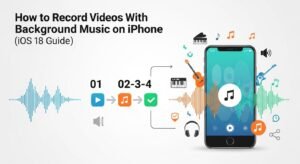
- How to Unhide Apps on iPhone in 2026: Step-by-Step Guide

- Fix iPhone App Icons Turn Grey or Show “Waiting” After iOS Update

Products
-
![Apple Watch Ultra 3 [GPS + Cellular 49mm] Running & Multisport Smartwatch w/Rugged Titanium Case w/Black Titanium Milanese Loop - M. Satellite Communications, Advanced Health & Fitness Tracking](https://bazaronweb.com/retailstores/wp-content/uploads/2025/09/apple-watch-320x320.jpg) Apple Watch Ultra 3 [GPS + Cellular 49mm] Running & Multisport Smartwatch w/Rugged Titanium Case w/Black Titanium Milanese Loop - M. Satellite Communications, Advanced Health & Fitness Tracking
Apple Watch Ultra 3 [GPS + Cellular 49mm] Running & Multisport Smartwatch w/Rugged Titanium Case w/Black Titanium Milanese Loop - M. Satellite Communications, Advanced Health & Fitness Tracking
-
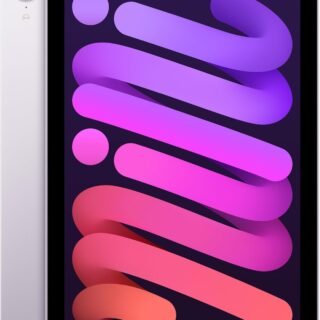 Apple iPad mini (A17 Pro): Apple Intelligence, 8.3-inch Liquid Retina Display, 256GB, Wi-Fi 6E, 12MP Front/12MP Back Camera, Touch ID, All-Day Battery Life — Purple
Apple iPad mini (A17 Pro): Apple Intelligence, 8.3-inch Liquid Retina Display, 256GB, Wi-Fi 6E, 12MP Front/12MP Back Camera, Touch ID, All-Day Battery Life — Purple
-
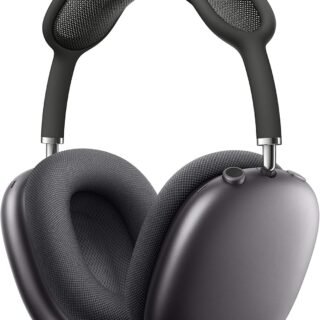 Apple AirPods Max Wireless Over-Ear Headphones, Active Noise Cancelling, Transparency Mode, Personalized Spatial Audio, Dolby Atmos, Bluetooth Headphones for iPhone – Space Gray
Apple AirPods Max Wireless Over-Ear Headphones, Active Noise Cancelling, Transparency Mode, Personalized Spatial Audio, Dolby Atmos, Bluetooth Headphones for iPhone – Space Gray
-
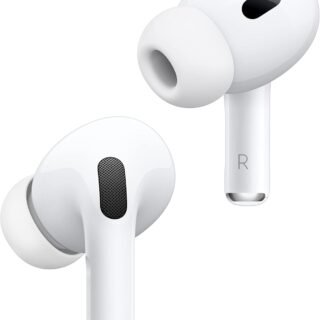 Apple AirPods Pro 2 Wireless Earbuds, Active Noise Cancellation, Hearing Aid Feature, Bluetooth Headphones, Transparency, Personalized Spatial Audio, High-Fidelity Sound, H2 Chip, USB-C Charging
Apple AirPods Pro 2 Wireless Earbuds, Active Noise Cancellation, Hearing Aid Feature, Bluetooth Headphones, Transparency, Personalized Spatial Audio, High-Fidelity Sound, H2 Chip, USB-C Charging
-
 Leo Creation 144 TC Cotton Double Jaipuri Prints Flat Bedsheet(Pack of 1, Blue, Gree, Red, Grey, Light Grey)
Leo Creation 144 TC Cotton Double Jaipuri Prints Flat Bedsheet(Pack of 1, Blue, Gree, Red, Grey, Light Grey)
₹2,999.00Original price was: ₹2,999.00.₹329.00Current price is: ₹329.00.
Leave a Reply